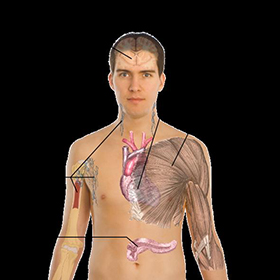
Sleep is as important to the human body as food and water, but most of us still don’t get enough sleep. We obtain treatment for illness or injury – yet we generally fail to seek help when we aren’t getting enough sleep. The average length of sleep has declined from around 9 hours a hundred years ago to seven hours today. And the depth of sleep has also declined.
Sleep is complicated in the way that there are many different factors that influence the effectiveness of sleep. It’s not just duration that determines the effectiveness of sleep, factors such as quality, frame of mind and deepness all contribute to the maximum desired outcome and even our perception of how we sleep. Many factors can play a part in the quality and quantity of our sleep.
On average a healthy person will spend around one third of their life sleeping. Inadequate hours of good quality sleep leads to a disruption to vital biological processes resulting in a decrease in mental and physical health including impaired cognitive function and lower productivity and work performance due to a decrease in attention, judgment and responsible decision making.
Numerous studies have also shown that even a little bit of sleep deprivation decreases efficiency and increases risk of disease, including cardiovascular disease, diabetes and cancer. Some of the physical effects found from long term fatigue are heart disease, diabetes, high blood pressure, gastrointestinal disorders, depression eating disorders and weight gain. Sleep deprivation has also been shown to negatively affect endocrine (hormones) and metabolic functioning as well as nervous system balance. A recent meta-analysis which included 122,501 subjects found that insomnia determined an increased relative risk of 45% of developing or dying from cardiovascular disease during the follow-up.
Sleep debt has been found to lead to elevated evening cortisol levels and impaired glucose tolerance and is a risk factors for the development of insulin resistance and perhaps type 2 diabetes.
Obesity is another disorder linked with sleep with sleep deprivation. Many studies, including one spanning twenty years, have shown increasing weight gain with poor sleep. Shift workers for example are known to be a high-risk group for obesity.
While many factors can contribute to insomnia and poor sleep undoubtedly the most important one in the twenty first century is stress. Increasing research shows that there is an activation of the stress-response system and the degree of sleep disturbance experienced correlates with the level of stress-response activation and that insomniacs and others with poor sleep patterns experience more psychological stress.
Unfortunately, there can be a vicious cycle of stress poor sleep and more stress. If you are not getting enough sleep, you have to rely more and more on your alarm clock, and if you oversleep and wake up already fatigued. Thus, a person who is always feeling tired – even after a good night’s sleep – may have overworked adrenal glands.
Cortisol levels are highest in the morning and decrease gradually throughout the day. The body develops a routine, and cortisol is secreted at roughly the same amounts at a particularly time of day, depending on levels of stress. If an individual does not receive enough sleep they will produce more cortisol than they would on a normal routine day. Studies also show that stress and elevated levels of cortisol actually inhibit the ability to fall asleep, further exacerbating stress symptoms.
In another study although all subjects reported equivalent numbers of daily stressful events, people with insomnia found the impacts of these events to be more severe. Insomniacs also experienced major life events more intensely, were much more alert before bedtime, viewed their lives as more stressful, and used emotionally-based coping strategies to deal with stress more often than did the normal sleeper group. It appears that although normal sleepers and insomniacs experience similar types of stressful inputs in insomniacs the stress-response is more sensitive to these inputs and its activation leads to lack of sleep.
The effects of sleep deprivation can include fatigue, reduced productivity, slower reflexes and reactions, moodiness and a lack of energy, mimicking many of the characteristics of stress. The more hours we spend awake, the more sluggish our minds become, according to the findings. One night without sleep reduces our brains ability to take in new information by nearly 40 percent, due to a shutdown of brain regions during sleep deprivation. Impaired sleep function decreases the neuroplasticity in the central nervous system resulting in diminished cognitive function as impulse transmission are impaired. Sleep is the regenerative time for the Central nervous system and nerves, without which brain atrophy and weakened conduction can result.
Brains that are sleep deprived aren’t as efficient and have to work harder. Exactly want you don’t want. Studies show the brains of the sleep deprived desperately pumping energy into the prefrontal cortex, trying to overcome the effects of sleep deprivation.
Sleep plays an important role in consolidating memories. While we sleep, our brain orders, integrates and makes sense of things that have happened to us. Not only that, but we seem to consolidate our learning while we sleep. Without sleep the process is badly disrupted, meaning it’s difficult to lay down long-term memories and it’s harder to learn new skills. Sleep deprivation causes many of the powers of focus and attention to decline which partly explains the distracted feeling you get when tired. Sleep deprived people easily get stuck in thinking loops and as a result fall back on the brain’s automated systems, our habits.
Perhaps it is time we valued sleep more and turned off the TV and computer earlier so we can be healthier and smarter the next day. 3 extra steps you can try to reduce stress related poor sleep include;
Meditate a few minutes before you go to sleep;
Try a sleep supplement from your local health food store; and
Don’t eat late and go for a little walk after dinner.